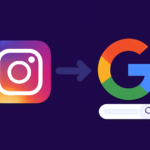Blog writing can feel overwhelming, especially if writing isn’t your forte – but don’t worry, we’ve got you covered! Here’s our beginner’s guide to blog writing; follow these steps, and you will be a pro blog writer in no time!
STEP 1: Pick a good title
The title must grab your reader’s attention (no pressure). Catchy titles will set the tone and mood of your blog. Don’t forget to include keywords too!
These title formats are always a winner:
- How-to content – How to Write a Blog
- Top Lists – Top 5 Blog Writing Techniques
- Fast Facts – 3 Steps to Write a Blog Like a Pro
- Emotional Titles – 4 Reasons Why NOT Blog Writing is Bad for Business!
Or focus on what you would search into Google to find information – there is your blog title 😉
STEP 2: Know your readers
You are writing for an audience, and they will be searching for relatable content. Some topics may appeal to Millennials and Gen Z but turn away Baby Boomers.
It is essential to know who you are targeting for your blog. That way, you can get on to their level and explain things in a way they will relate to and understand.
STEP 3: Know what to write and how to write it
Google is your best friend; research is an essential element when it comes to blog writing. By researching, you will find any extra information to include in your blog writing, plus it allows you to see what other blogs are out there based on your topic.
Good chance your reader is time-sensitive (everyone is) and will skim read short, sharp sentences. Go straight to the point; you won’t appear blunt in your writing.
STEP 4: Have a captivating introduction
Your catchy title got your reader to open the blog; your intro will make them read on.
STEP 5: Have fun writing and edit, edit edit!
Be yourself when writing your blog. Let the inspiration take over and write – you can always go back to edit your work.
Editing and proofreading are essential. The reader will quietly judge you if they notice a spelling error. You need to pay attention to your grammar. Check everything flows and read well.
STEP 6: SEO keywords
SEO keywords are essential to blog writing. The keywords are why blogs are found via organic web traffic, for your blog to stand out from the crowd, research keywords that relate to your blog and how it is ranked in search engines.
STEP 7: Blog format
Readers love subheadings! They are visual cues and allow a skim reader to quickly gain an overview of the blog topics. Make your subheadings exciting and informative.
Use bullet points (which are also visually appealing) if you have to list specific items.
STEP 8: Use images
Remember that classic saying, a picture is worth 1000 words? It applies to blogs as well. Pictures help support your content and can make it more interesting.
Everyone now has a short attention span; you will need to wake up the reader’s brain with some pictures to stimulate their attention back.
Like lousy grammar, you don’t want to use a pixelated image.
Keep in mind that large-size images will slow down the blog load – your reader will get impatient and opt-out.
STEP 9: End your blog with a bang!
Your blog title gets them, and your intro makes them read it. The ending needs to be strong too.
The closing conclusion is your opportunity to end with a statement to make them take action! Use action words such as get, go, do, and buy! Remind them of why their action is necessary.
See, blog writing isn’t that challenging! Just by following our beginner’s guide to blog writing, you will have the system to write a successful blog!
If you need assistance with writing a blog, our team of marketing experts is ready to help! Chat to us today.







